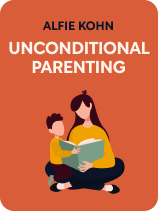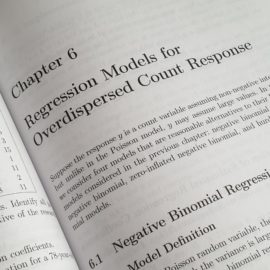

This article is an excerpt from the Shortform book guide to "Unconditional Parenting" by Alfie Kohn. Shortform has the world's best summaries and analyses of books you should be reading.
Like this article? Sign up for a free trial here .
Want to know how to become a good parent? What are the three principles of great parenting?
Author and lecturer Alfie Kohn believes that standard parenting principles are outdated and potentially damaging. To become a good parent, Kohn created his unconditional parenting principles to show parents how to positively discipline and communicate with children.
Read on to learn Kohn’s three essential principles for how to become a good parent.
How to Become a Good Parent: Rethinking Parenting
Want to know how to become a good parent? In his book, Kohn notes that most parents have similar long-term goals for their children: They want them to be happy, independent, confident, and creative. But he cautions that it’s easy to forget about these goals in the short term and shift your focus to whether or not the child is being “good” (doing what you want them to do) or “bad” (doing something else) at any given moment.
This concept of “good” and “bad” behavior, and the system of rewards and punishments that springs up to reinforce it, entangles both parents and children so deeply that it can be hard to see alternatives. If you want to become a good parent, Kohn says how you discipline children makes a big difference. The central issue with traditional discipline is that rewards and punishments make children feel that their parents’ love, approval, and affection are contingent on them behaving well.
(Shortform note: While Kohn’s methods are similar to those of other gentle parenting advocates, his emphasis on unconditional love over behavior change strategies sets him apart from most others. This underlying attitude of unconditional support does seem to be important. For example, research shows that both negative and positive “parental conditional regard” have negative effects on children, especially in terms of how they learn to cope with difficult emotions. The opposite of conditional regard—autonomy support—has positive effects.)
Principle #1: See Things From the Child’s Perspective
According to Kohn, if you want to become a good parent, you should understand how to have empathy. Young children get carted from place to place, they’re physically smaller and weaker than adults, and in general they have very little control over their lives. They’re also dealing with impulses and emotions they don’t understand, rapidly changing bodies and brains, and new and confusing social situations. Your child’s needs and emotions might not make much sense to you (for example, you might not be too worried about monsters under the bed), but you should take them seriously because your child takes them seriously. In particular, don’t dismiss behavior as “attention-seeking”—wanting attention is a perfectly legitimate human need.
Principle #2: Communicate Unconditional Acceptance
Kohn emphasizes that unconditional parenting isn’t about the message you think you’re sending—it’s about the message the child is receiving. The fact that you love your child unconditionally is less important than how they feel. This doesn’t mean that becoming a good parent requires you to see how everything your child does as perfect—but it does mean that no matter what he does, your highest priority should always be creating an emotionally safe environment. Body language, facial expressions, and gestures are key here.
Principle #3: Reflect Regularly
Using self-reflection is one of Kohn’s most important principles for how to become a good parent. To make sure that you don’t parent according to your mood or unknowingly reproduce patterns from your own childhood, stop and reflect often. Kohn cautions that this isn’t the same as rationalizing the decisions we’ve made (which is often tempting). The goal isn’t to be overly self-critical, as that doesn’t help either; it’s to introduce a healthy level of humility and an openness to change. Kohn recommends that you stop and ask yourself: “If someone said or did that to me, would I feel loved unconditionally?”

———End of Preview———
Like what you just read? Read the rest of the world's best book summary and analysis of Alfie Kohn's "Unconditional Parenting" at Shortform .
Here's what you'll find in our full Unconditional Parenting summary :
- How to raise kids to be self-confident, independent, and compassionate
- Why you should throw away the standard parenting rulebook
- Why rewards and punishments cause more harm than good






